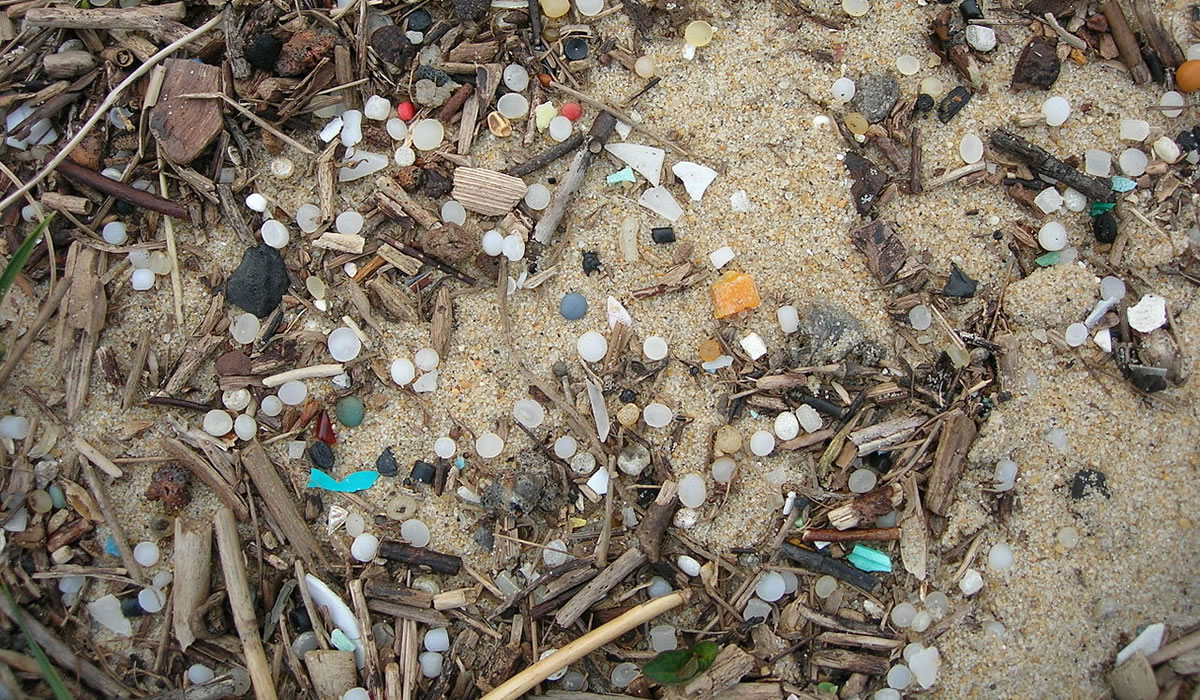By Lindsay Street, Statehouse correspondent | Plastic is a growing export business in South Carolina, but the tiny plastic pellets could also be a big environmental hazard — and the next battle in the so-called War on Plastic.
State Ports Authority CEO Jim Newsome last week called plastic transportation “a significant part” of the port’s growth strategy.
But downstream from the port’s headquarters on the Cooper River, Sullivans Island Mayor Pat O’Neil said he’s worried. The town’s single-use plastic ban appeared to curb litter. Then in July, a spill of plastic pellets (also known as nurdles) from Frontier Logistics at the port traveled to its beaches. Despite cleanup efforts, pellets remain in the sand, the mayor said. The pellets are used in the production of plastic homegoods.
“Industry is important (and) economic growth is important but we need to be selective and prudent in the types of industries we encourage,” O’Neil said.
Eighteen local governments have passed plastic bag bans, but there are few protections in place in the state from pre-production plastic. Frontier Logistics can avoid monetary penalties for the spill as long as it attends remediation meetings, according to a July 26 letter from the S.C. Department of Health and Environmental Control (DHEC).
“Here we are doing everything we can to keep plastic out of the environment, and here are those nurdles,” said S.C. Sen. Sandy Senn, R-Charleston, told sister publication Statehouse Report. Read the full story here.
Responsible transportation of plastic pellets is a “high priority” among environmental advocacy groups, according to Coastal Conservation League Land, Water and Wildlife Program Director Emily Cedzo.
“It’s a burgeoning business for South Carolina right now. The onus is on us to find the solutions,” she said. “Who are we responsible to? The public and environment or the plastics industry?”
But beyond whether the state should prevent local governments from enacting single-use plastics bans for bags or straws or sporks (Senate Bill 394) or if the state should have its own statewide ban, the legislature currently does not have any other plastic legislation on its agenda for the 2019-2020 session.
And in the meantime, nurdles are becoming a big business at the port. In 2017, the port saw 79,000 tons of pellets exported. In 2018, that amount grew by nearly three times: 226,000 tons of pellets. Another company, A&R Logistics, is expected to bring an additional 132,000 tons of pellets once its warehouse opens in Berkeley County
“I doubt anyone is going to tell (transporters) not to come because it’s one of the few things we get a leg up on China … They buy those plastic pellets from us,” Senn said. She added, “But (the companies have) got to be more responsible.”
 In related news, overall business at the port continues to surge as it just had its best September ever on record for cargo volumes, according to a press release.
In related news, overall business at the port continues to surge as it just had its best September ever on record for cargo volumes, according to a press release.
“Our productivity is made possible by our incredibly talented team and the entire maritime community, all working together to keep freight moving,” Newsome said.
The Wando Welch and North Charleston container terminals handled nearly 195,000 twenty-foot equivalent container units (TEUs) in September, up 12.5 percent from a year ago. The port has handled 638,600 TEUs in the first three months of fiscal year 2020, up 10 percent year-over-year.
- Have a comment? Send to: editor@charlestoncurrents.com






 We Can Do Better, South Carolina!
We Can Do Better, South Carolina!
























